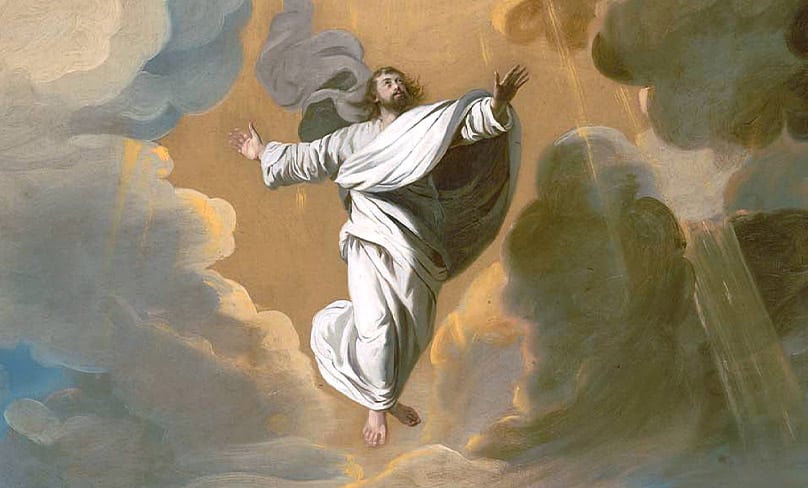
“Dear Father, I am always interested in the origin of the feast days we celebrate today. For example, was the feast of the Ascension of Our Lord celebrated in the early centuries?”
The feast was indeed celebrated early on, at least from the fourth century. Since the New Testament mentions that Our Lord appeared to his disciples during forty days before he ascended into heaven (cf. Acts 1:3) it is likely that the event was commemorated in some way on that day from the time of the apostles as were, for example, the celebrations of Our Lord’s death and resurrection.
Nonetheless, it seems that the Ascension was not celebrated as a separate feast in the liturgy of the Church for the first three centuries but rather was included in the celebration of the coming of the Holy Spirit at Pentecost.
The first person to mention the Ascension as an established and separate feast was Eusebius, bishop of Nicomedia, who incidentally baptised the emperor Constantine and died in 341 AD (De Soll. Pasch., 5).
By the end of the fourth century the Ascension was celebrated throughout the Roman Empire.
St Augustine attributed its origin to the apostles themselves, probably because by his time the feast ranked with the greatest liturgical celebrations. He mentions as “solemn anniversaries” of the Lord the “passion, resurrection and ascension, and the coming of the Holy Spirit” (Epist. ad Inquis. Januarii, 54, 1).
By the end of the fourth century the feast was well established in the East too, as seen in the fact that St Gregory of Nyssa (In Ascens. Christi) and St John Chrysostom (Hom. in Ascens., 2) preached homilies on the feast of the Ascension.
From those early times until our own day, the feast of the Ascension was always a holyday of obligation, celebrated on the Thursday after the sixth Sunday of Easter, the fortieth day after Easter Sunday.
With the reform of the liturgical calendar after the Second Vatican Council, as indicated in the Code of Canon Law of 1983, the bishops conference of each country was allowed to transfer the liturgical celebration of the Ascension to the following Sunday and, if they did not transfer it, they could suppress it as a holy day of obligation (cf. Can. 1246, §2). In Australia before the new Code, the Ascension was celebrated on the Thursday and it was a holy day of obligation.
Later the feast was transferred to the Sunday to enable more people to participate in it. And, as always, Sunday “is to be observed in the universal Church as the primary holy day of obligation” (Can. 1246, §1).
Whereas most of the greatest feasts of the year are preceded by a vigil celebration on the day before, as they are today in the Divine Office, the feast of the Ascension did not have a vigil until well into the seventh century, when it was mentioned in some Roman lists of holy days.
The reason for this was that a vigil always involved the observance of penance to prepare for the feast, and in the festive season between Easter and Pentecost penance was considered to be out of place.
In the ninth Century the celebration of the vigil passed from Rome to the Frankish empire and thus it became established as a universal practice in the Latin Church.
The Greek Church never observed the vigil. Even though vigils were observed as days of fasting in the early Church, the obligation of the fast before the Ascension was gradually lessened, especially in recent centuries. The Code of Canon Law of 1917 no longer listed the vigil of the Ascension as a day of obligatory fasting.
As with the other feasts of Our Lord, the early Church highlighted not so much the historical event of Christ’s ascension into heaven as its theological and spiritual significance for the faithful. For example, St John Chrysostom said: “Through the mystery of the
Ascension we, who seemed unworthy of God’s earth, are taken up into heaven… Our very nature, against which Cherubim guarded the gates of Paradise, is enthroned today high above all Cherubim” (Hom. in Ascens., 2)
So yes, the feast of the Ascension goes back to the early centuries.
